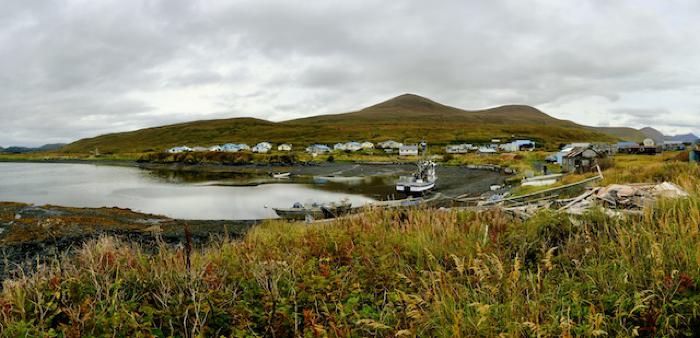Where From — Naken

The ways people introduce themselves vary across cultures. The traditions in which people are raised influence how they greet each other and express their identities. For example, if you are in Beijing or Boston, shaking hands is a friendly, polite way to meet. In France and Mexico, air kisses on the cheeks are the norm, and in other places, people rub noses or place a hand over their heart.
The ways people from different cultures talk about themselves also vary. A person of European descent might introduce themselves as a fisherman from Alaska. In contrast, a Native person might share a tribal affiliation or ties to a family or clan. Alutiiq people often share their Alutiiq language name and identify their families. This may include speaking in Alutiiq and providing an English translation. For example, I like to say, “Cama'i! Gui Dehrich. Ap'rtaaratnga Isuwiq. Sun'ami suullrianga. Aanaqa Serenity Chya, ataka Ehrich Schmidt. Hello! My name is Dehrich. My Alutiiq name is Isuwiq. I was born in Kodiak. My mom is Serenity Chya, and my dad is Ehrich Schmidt.”
Another increasingly common part of an introduction is a land acknowledgment. Native speakers often take a moment to note they are standing on traditional lands, particularly when they are traveling beyond their own homeland. For example, an Alutiiq person introducing themselves at a gathering in Anchorage might share their personal details and then acknowledge and thank the Dena’ina Athabascan. This tradition is growing, as people of all heritages recognize the deep ancestral ties indigenous people have to lands colonized in recent centuries.
On Kodiak, people wishing to make a land acknowledgment might say, “We respectfully acknowledge that the Kodiak Archipelago is the Alutiiq/Sugpiat homeland. We thank and acknowledge the ten tribes of the Kodiak Alutiiq Region. The heritage and culture of the Alutiiq people continue to enrich the Kodiak community.”
